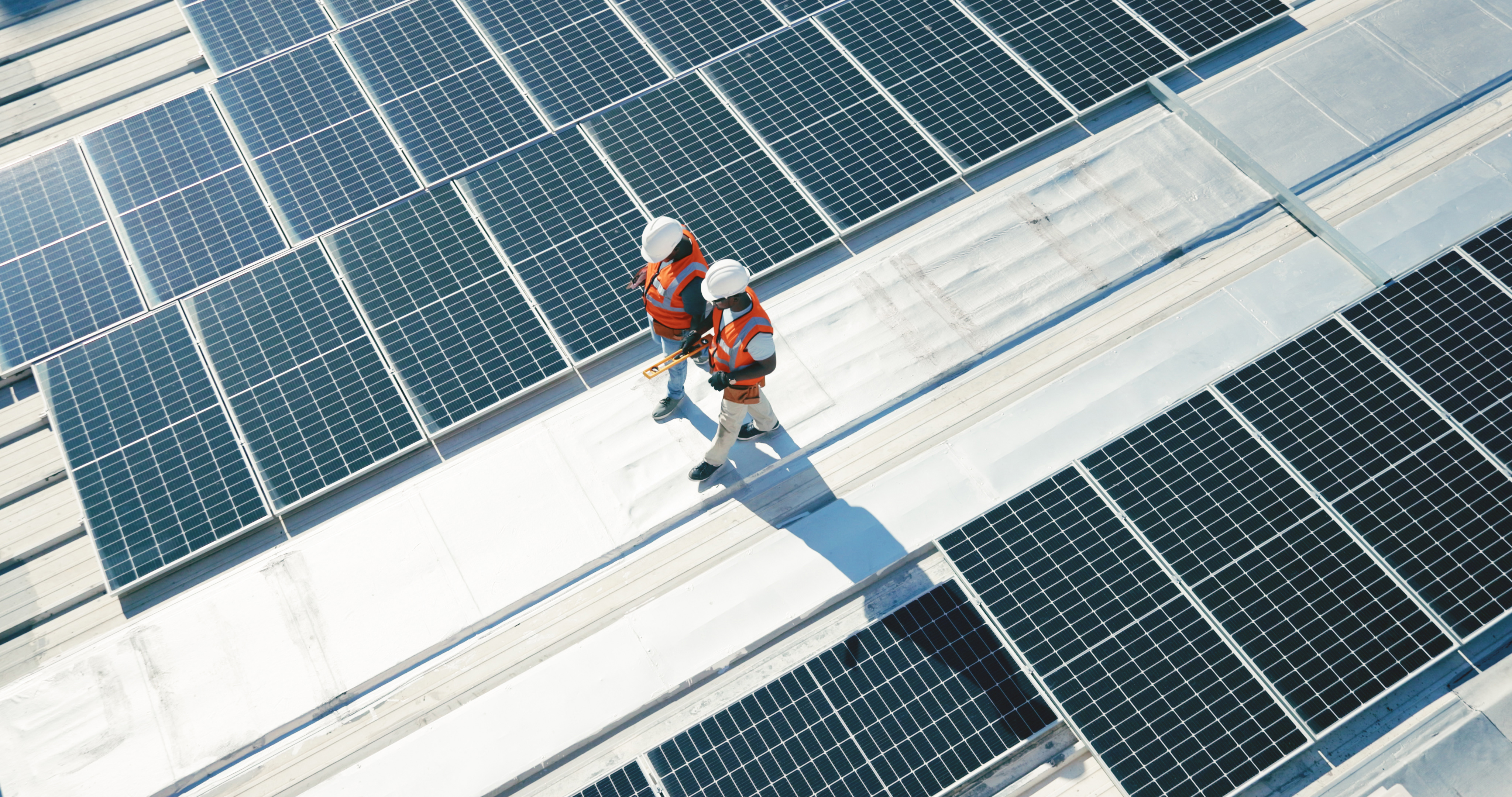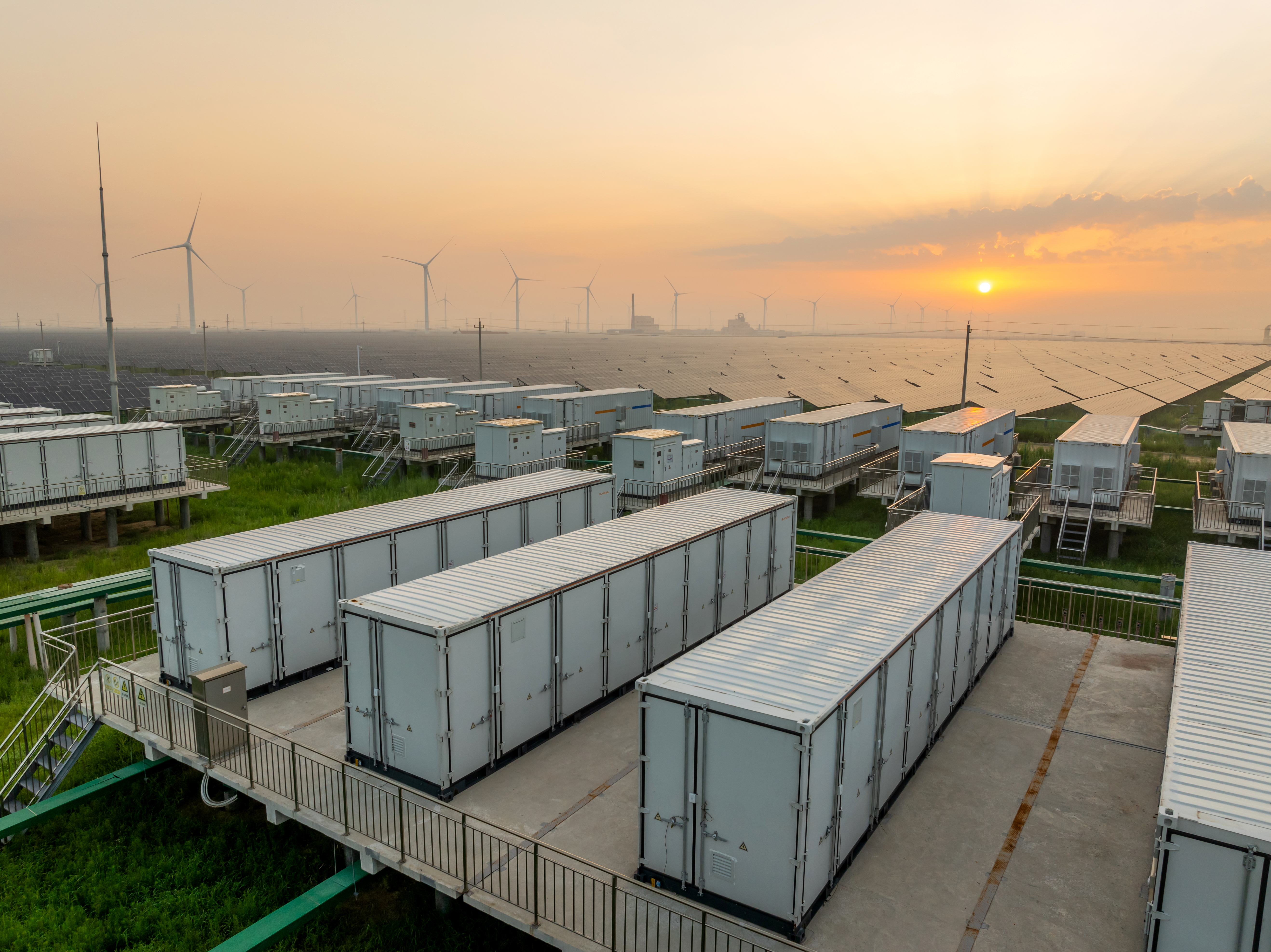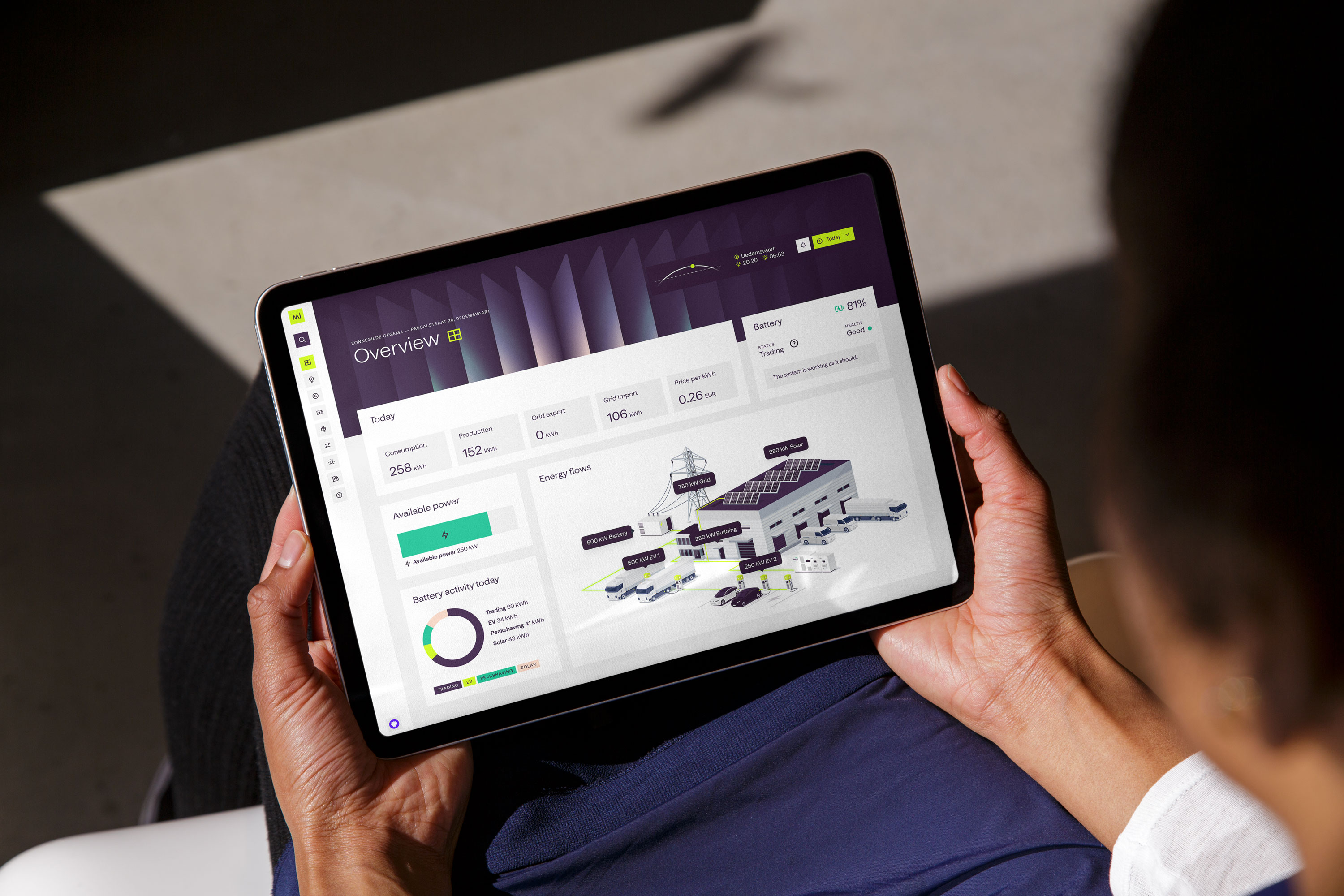The energy transition: No more time for excuses

The energy transition is in danger of grinding to a halt. We have the knowledge, the technology, and the experience to make it a success. But instead of pushing ahead, we are being held back by an outdated distribution network, local grid congestion, endless political wrangling, and bureaucracy. It’s time to stop talking and start acting.
Renewable energy is breaking records…
Gas and coal are losing ground. Since 2007, CO₂ emissions in the European energy sector have been cut in half. In 2024, solar power delivered more electricity than coal for the first time in EU history: 11% versus 10%. In just five years, the share of renewable energy sources rose from 34% to 47%, while the share of fossil fuels dropped from 39% to 29%.*
These are major achievements – and not just because we want to be more sustainable. Renewable energy has also become cheaper. Since 2019, wind and solar have saved the EU €59 billion in fossil fuel imports. That’s not ideology – it’s hard economics.
… but the grid is cracking
Unfortunately, this success has a downside: we’re now producing more green power than we can actually use. The issue isn’t generation – it’s infrastructure. We continue building wind and solar farms, but during peak moments, the energy they generate threatens to overload the grid. Generation is sometimes forcibly shut down, green investments don’t yield returns, and businesses are put on hold. It’s not just frustrating – it’s a serious threat to the energy transition.
What many people don’t realize is that this problem is only going to get worse in the coming years. Demand for electricity is rising due to the electrification of industry, transport, and households. Heat pumps, electric vehicles, and hydrogen production are putting increasing strain on a network that simply isn’t designed for it. If we don’t act now, we’ll hit a wall.
It’s not just about laying new cables and installing bigger transformers, that takes years. We need to use energy more intelligently: store it, spread it, balance it.
Waiting for the grid means waiting for trouble
In some regions of Flanders, companies already can’t get new or upgraded grid connections. Or they’re unable to feed their generated energy back into the grid, not due to unwillingness, but because the infrastructure just can’t handle it. The solution? It’s not just about laying new cables and installing bigger transformers, that takes years. We need to use energy more intelligently: store it, spread it, balance it.
What strikes me is how many companies are still waiting. Waiting for the grid, for the government, for “better times.” But those who don’t move now will fall behind. At iwell, we’re working on smart energy solutions that tackle grid congestion head-on. Not theoretical ones, but practical ones. Our energy management system stores energy efficiently so it can be used exactly where and when it’s needed. Without waste during moments when the grid is full.
No grid expansion, no waiting time, just doing what’s possible.
A real-world example: energy security today
A great example of how energy security is already achievable comes from logistic real estate developer Montea. In Willebroek, the company recently launched its first energy hub: a battery park with a storage capacity of 15.05 MWh, installed by iwell. This allows solar energy to be stored locally and deployed precisely when needed, during peak demand or grid overload.
The hub serves five logistics buildings on-site, including one leased to Dachser, a service provider fully committed to zero-emission transport. Thanks to EMS and smart batteries, Dachser can charge electric trucks with its own green energy. This saves them thousands of euros a year in grid costs and represents a major step toward climate-neutral transport in cities like Brussels, Antwerp, and Mechelen.
For Montea, this is not a one-off project but the start of a broader strategy. By 2027, the company aims to realize over 100 MWh of storage capacity across multiple sites, representing a €50 million investment.
By taking control of their own energy consumption and supply, Montea gains greater control over costs, continuity, and sustainability, both for themselves and their clients.
Energy security: a new competitive edge
Montea’s example also shows how the role of companies in the energy market is changing rapidly. Where energy used to be a fixed cost, it’s now a strategic part of operations.
Companies that manage storage, generation, and usage smartly can operate more efficiently, reduce energy costs, avoid peak loads, and even profit from their own energy systems. The choice is simple: gain control over your energy – or remain dependent on an overloaded grid and uncertain national and international conditions.
We don’t believe in waiting
The energy transition isn’t some distant goal, it’s happening now. We can keep talking about the challenges, but the solutions already exist. We just need to apply them.
The only question that remains is: who dares? Who recognizes that energy is no longer just a cost, but an opportunity? Who won’t wait for others but takes charge themselves? Who becomes part of the solution?
At iwell, we don’t believe in waiting. We build smart energy systems that ensure renewable energy is used to its fullest, so the energy transition can move forward. Not tomorrow. Not in five years. Today.
*Source: European Electricity Review 2025



